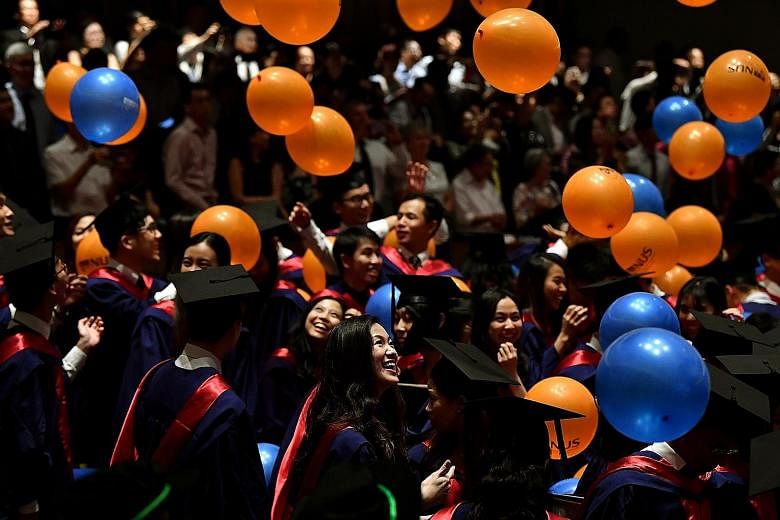Educational institutions here must operate within the laws while maintaining academic standards. They must also recognise Singapore's cultural and social context and should not be misused for partisan politics.
Education Minister Ong Ye Kung said educational institutions, including autonomous universities, should internalise these "guiding principles" that he outlined in Parliament yesterday.
At the minimum, they should not undertake activities that expose their students to the risk of breaking the law, he added.
"They should not work with speakers and instructors who have been convicted of public order-related offences, or who are working with political advocacy groups funded by foreigners, or who openly show disloyalty to Singapore," Mr Ong said.
He was speaking in reference to the cancellation of a module on dissent at Yale-NUS College that was to have been run by local poet and playwright Alfian Sa'at.
Mr Ong had earlier noted that Mr Jolovan Wham, Mr Seelan Palay, Ms Kirsten Han and Dr Thum Ping Tjin - who have either been convicted of public order offences or are said to be receiving foreign funding in their work - would have been involved in the module.
Elaborating on the guiding principles, Mr Ong said Singapore's laws are the democratic expression of the will of its people, which is why educational institutions must operate and exercise their academic freedom within those legal limits.
"Every country has their rules and laws, red lines unique to themselves," Mr Ong said.
"For example, I do not think the US would tolerate an American university course designed by jihadists to promote violence, or that France or Germany would accept a course teaching that Nazism is good. These would fall foul of their laws."
At the same time, institutions should continue exploring and debating issues within the context of academic study, he added.
This should be underpinned by rigorous intellectual reasoning, which is especially important when studying complex and potentially controversial issues, Mr Ong said.
On the need for institutions to avoid being misused for partisan politics, Mr Ong said there are many avenues for political parties and activists in Singapore to champion their causes, and for people to make their choices and exercise their political rights. He added that politicians may not campaign, mobilise support or advance their party politics in any educational institution.
"When political office-holders attend events, give speeches or conduct dialogues with students, they will do so only for the purpose of discussing national policies, not to mobilise partisan political support."
Lastly, Mr Ong said every society is a product of its history, culture and unique circumstances which set the context of what is acceptable, and Singapore is no exception.
He cited tripartism - the three-way partnership between the Government, employers and unions - as an example of how Singapore has resolved problems, before protests and strikes break out. "We should strengthen this collective, constructive approach, and avoid falling into the divisions and dissensions that plague other societies," he said.


